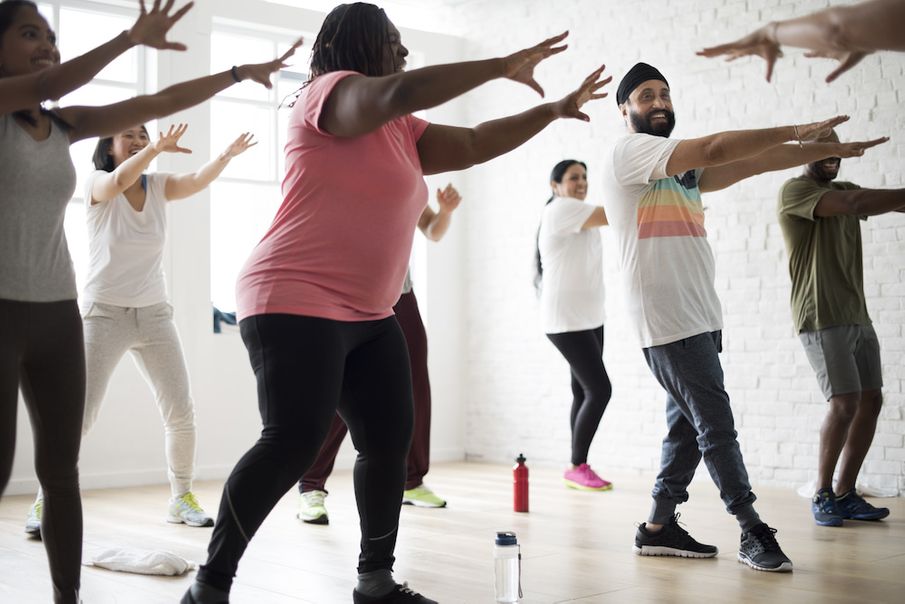Working out is something we’d all like to do more often, but never quite get around to. Exercise has been proven to benefit both your physical and mental health, so sticking with it can do wonders for your wellbeing.

It’s that time of year when we think about where we’d like to be in 12 months’ time – healthier, more productive, or learning to cook! We dust off the gym membership card we’ve not seen since March, and wait for a machine to free up in the newly-packed workout room. But in a month or two, this room won’t be so busy. We’ll say, “I’m too tired,” “It’s too dark outside,” or “I could just binge watch Breaking Bad again instead.”
But working out doesn’t have to feel like a chore – it’s not about comparing yourself to the people around you, or #fitspo images you see online: it’s an act of self-care.
While we all know that exercise has physical benefits, it also has a wealth of mental health benefits too. In particular, exercise has been proven to have a positive effect on our mood, with researchers finding that when people were asked to rate their mood immediately after periods of activity and inactivity, those who had been more active felt “more content, more awake and calmer”.
And yet, according to a report by National Statistics and NHS Digital, in 2015/16, 26% of adults were classified as inactive – spending fewer than 30 minutes a week doing physical activity. So Happiful has come up with a guide to help encourage that new year motivation, and most importantly, maintain that exercise enthusiasm:
While it’s never easy to get into a new habit, making that conscious effort initially will pay off. If you factor exercise on certain days into your weekly plan, and put the effort in to develop that routine initially, it’ll become almost instinctual. While the old myth says habits form in 21 days, recent research says it averages at two months, but don’t be disheartened. The good news is that study author Phillippa Lally says: “Over time it will start to happen more easily and require less effort.”

Having someone to work out with can make it a more sociable experience. Some people like zoning out into their own bubble when exercising, but if you’re struggling to find the motivation to go, having someone to encourage you along the way can help on days when you’re flagging.
Some people find it incredibly dull to spend 20 minutes on the treadmill each visit, so shake it up. Research shows that varying your workouts not only helps prevent boredom, but it’s more physically effective too – working different muscle groups and keeping your body on its toes.
Having something booked in means you’ll be less likely to skip out – someone is expecting you to be there. You’ll know you need to leave work at a certain time to make it, and you’ll have an instructor to give you that energy boost and enthusiasm, even on days when you’re not quite feeling it!

One excuse I’ve told myself plenty of times is that it’ll be too late to go to the gym by the time I’ve gone home and changed. The solution is simple. Pack your workout clothes the night before and take them with you. You can save travel time between places, and there’s less of a chance you’ll end up back home, distracted by the TV.
For some people, knowing there’s direct improvement in their fitness helps keep them enthusiastic. Perhaps take note of how far you can run without stopping, and see how it increases week on week. You can even have a little competition with yourself to give you that mental boost alongside those exercise endorphins. But remember, even if you’re having a day where you don’t make a new PB, the fact that you’re up and trying is always a win.


Comments